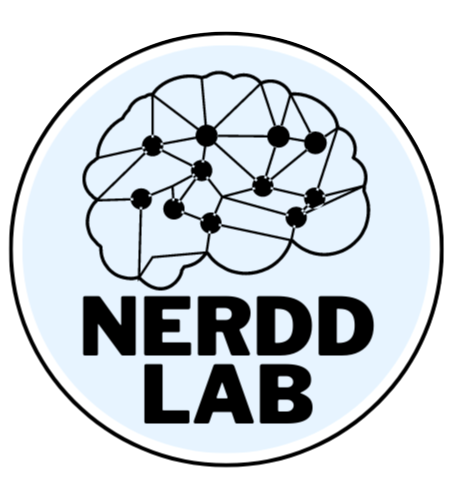 The Novel Environments for Reducing Disability & Dysfunction (NERDD) Lab
The Novel Environments for Reducing Disability & Dysfunction (NERDD) Lab
PI: Brooke Dexheimer, PhD, OTD, OTR/L
Lab Location: 900 E. Leigh Street, Room 5013
About the Lab
The NERDD Lab is interested in how sensory information informs movement and perception. We investigate this from two perspectives: (1) a basic neuroscience perspective, with the aim of increasing our understanding of how movement is specified and learned, and (2) a translational and clinical perspective, with the goal of identifying targeted interventions to treat movement deficits following neurological injury.
We believe that a mechanistic understanding of how the central nervous system generates functional movement, including neuroanatomical correlates, is vital in order to enhance clinical outcomes for rehabilitation aimed at targeting movement deficits.
Our Equipment
3D virtual reality system (HTC VIVE Pro 2) with upper extremity movement tracking capabilities
We program custom, immersive, 3D VR environments in-house (Unity Pro) for investigating how sensory feedback and internal states inform voluntary movement and motor adaptation
High-definition transcranial electrical stimulation (HD-tES: HD-tACS, HD-tDCS, HD-tRNS)
We use non-invasive stimulation to probe functional neuroanatomical correlates for motor control, motor learning, and sensory perception
2D tabletop VR system (custom built) with upper extremity movement tracking capabilities
Our custom tabletop VR system allows us to conduct upper extremity motor control experiments in a controlled, non-immersive environment (ideal for individuals prone to cybersickness)
Selected Publications
Dexheimer, B., Sainburg, R. When the non-dominant arm dominates: the effects of visual information and task experience on speed-accuracy advantages. Exp Brain Res 239, 655–665 (2021). https://doi.org/10.1007/s00221-020-06011-6
Maenza, C., Sainburg, R.L., Varghese, R., Dexheimer, B., Demers, M., Bishop, L., Jayasinghe, S.A., Wagstaff, D.A. & Winstein, C. Ipsilesional arm training in severe stroke to improve functional independence (IPSI): phase II protocol. BMC Neurol 22, 141 (2022). https://doi.org/10.1186/s12883-022-02643-z
Dexheimer, B., Przybyla, A., Murphy, T.E., Akpinar, S. & Sainburg, R.L. Reaction time asymmetries provide insight into mechanisms underlying dominant and non-dominant hand selection. Exp Brain Res 240, 2791–2802 (2022). https://doi.org/10.1007/s00221-022-06451-2
Dexheimer, B., Sainburg, R.L., Sharp, S., & Philip, B.A. (in press) The roles of handedness and hemispheric lateralization: implications for rehabilitation of the central and peripheral nervous system. Am J Occup Ther.